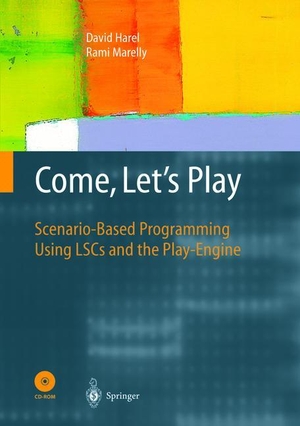Für statistische Zwecke und um bestmögliche Funktionalität zu bieten, speichert diese Website Cookies auf Ihrem Gerät. Das Speichern von Cookies kann in den Browser-Einstellungen deaktiviert werden. Wenn Sie die Website weiter nutzen, stimmen Sie der Verwendung von Cookies zu.
Cookie akzeptieren
Rami Marelly / David Harel
Come, Let¿s Play
- Springer Berlin Heidelberg
- 2012
- Taschenbuch
- 404 Seiten
- ISBN 9783642624162
This book does not tell a story. Instead, it is about stories. Or rather, in technical terms, it is about scenarios. Scenarios of system behavior. It con centrates on reactive systems, be they software or hardware, or combined computer-embedded systems, including distributed and real-time systems. We propose a different way to program such systems, centered on inter object scenario-based behavior. The book describes a language, two tech niques, and a supporting tool. The language is a rather broad extension of live sequence charts (LSCs), the original version of which was proposed in 1998 by W. Damm and the first-listed author of this book. The first of
Mehr
Weniger
zzgl. Versand
in Kürze